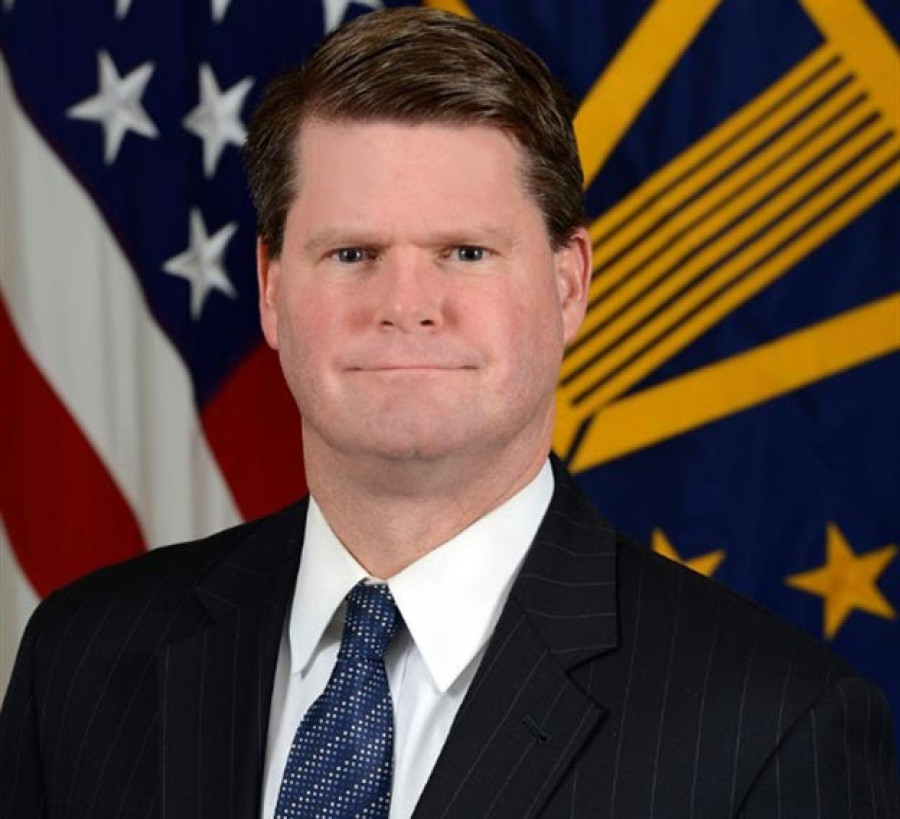Politics
US does not force Nepal to make a choice between capitals and countries, visiting official says
‘Sometimes US competitors want to set a narrative that we force a choice and try to counter somebody else’s strategy.’
Anil Giri
Defending the Indo-Pacific Strategy, a visiting US official said on Friday that the United States does not want to force Nepal to take a side between capitals and countries over rival strategies.
At a time when the US-led Indo-Pacific Strategy is seen and described as a counterbalance to China’s Belt and Road Initiative, Randall Schriver, the US Assistant Secretary of Defense for Indo-Pacific Security Affairs, said Washington will never force Nepal to make a choice over somebody else’s strategy.
Talking to reporters before wrapping up his two-day Nepal visit, Schriver said on Friday that sometimes US competitors want to set a narrative that “we force a choice, try to counter somebody else’s strategy”.
“But that’s not the case,” he said. “If there’s a choice for the people of Nepal, the choice is done; you want to protect your sovereignty, you want to protect and promote international law and norms. That is not a choice between capitals or countries; it’s a choice for standing up to these principles and values.”
Schriver, who arrived in Kathmandu on Thursday and held talks with Deputy Prime Minister and Minister for Defence Ishwar Pokhrel, Foreign Minister Pradeep Gyawali and Chief of the Army Staff Purna Chandra Thapa, maintained the line presented by other visiting US officials when it came to the Indo-Pacific Strategy.
While there still lacks clarity among the leadership in Kathmandu over how Nepal and the Indo-Pacific Strategy are tied, during their visits, US officials, some directly and others obliquely, have brought up the Belt and Road Initiative and even cautioned about the possible debt Nepal could incur in the long run.
Nepal signed up to China’s Belt and Road Initiative in 2017 and is trying to get some big infrastructure projects under it.
Last year, when Gyawali visited the US, the first by a Nepali foreign minister in 17 years, Washington said Nepal was part of the Indo-Pacific Strategy, an assertion Nepali leaders tried to dismiss.
US officials in Kathmandu or Washington, however, maintain that the Indo-Pacific Strategy has more than defence and military components. One example they always push forward is the $500 million grant under the Millenium Challange Corporation, an agreement signed between the US agency and the Nepal government in 2017.
Asked how the US sees some arguments that the Indo-Pacific Strategy is a counter to China’s BRI and whether external forces are trying to influence Nepal in building opinion against the strategy, the visiting US official said it is hard for him to explain how it is received and reacted in Nepal.
“But we welcome the opportunity for discussion and further articulate what our vision is and what our policies are,” said Schriver. “Our vision is an inclusive one... to include countries that we refer to as competitors in our national security strategy and our national defence strategy. So that includes China, for example; we have robust engagement with China. I was recently in Beijing, our secretary of defence recently met with the minister of defence of China. So our hope is that they too will see the value in supporting international rules.”
The multi-million dollar agreement between the US agency and Nepal is viewed by many in Kathmandu as a counter-initiative under the US Indo-Pacific Strategy against China’s Belt and Road Initiative.
As per the agreement, the US agency will provide $500 million in grants, and the government will spend $130 million on energy and transportation projects of high importance in the Marsyangdi and Kaligandaki corridors and the southern plains.
“Yes, we are bringing new tools through Indo-Pacific vision but it has been the consistent approach of the US government across the administrations to base it on rule-based factors and respect for democracy, human rights and sovereignty and rules based on international order,” said Schriver. “So our vision for IPS is that it remains free and open, and the region is characterised by some fundamental principles and qualities.”
According to him, respect for sovereignty, support for international law and norms, peaceful dispute resolutions, and free, fair and reciprocal trade are what the strategy aims.
“So when it comes to the defence component, it is too obviously helping countries protect their own sovereignty,” said Schriver. “Our goal for Nepal within the overall vision of the region is that Nepal be a strong, independent, sovereign, prosperous—nothing more than that.”
Schriver, who looks after Indo-Pacific Security Affairs, said that he is optimistic about the State Partnership Program under the Indo-Pacific Strategy.
“It is something that we are enthusiastic about because we see how this works in other countries,” said Schriver. “We have many state partnership programmes in the Indo-Pacific region and some of them have been going on for more than a decade.”




 10.12°C Kathmandu
10.12°C Kathmandu















